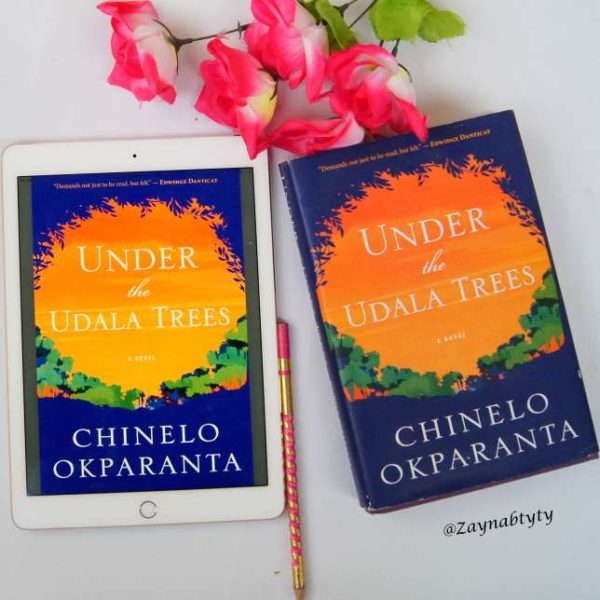
“Dear Mr. Brittle” is a new Brittle Paper series in which our deputy editor Otosirieze Obi-Young tackles questions gathering on social media. Different writers will occasionally be invited to answer questions in the series. New questions or response essays can be sent to brittlesubmissions@gmail.com with the header “Dear Mr. Brittle.”
======
DEAR MR. BRITTLE,
Many things confuse me about the literary scene in Africa, but let me begin with this.
I am a young Nigerian writer. Because I want to learn as much as possible, all I do when I’m not writing or reading books or surfing The New Yorker or reading news on your site is roam on Facebook. Every day, since I began writing in 2016, I send friend requests to writers and then loiter around their pages, around every post and comment they make about the writing life.
This year, I began to see some of my favourite writers post about awards. They say that all anybody needs to do to win or be shortlisted for awards in Africa is write about homosexuality. They give examples to back up their argument: the Brunel Prize, the Caine Prize and the Writivism Prize are now dominated by queer writers. They say it is so because these awards are funded by Westerners and so want to project a certain image of Africa. They want to forcefully make homosexuality mainstream even when such stories have limited emotional impact because not everybody can relate to it. I am troubled because the people I wanted didn’t win any of those awards; so I am moved to believe what my favourite writers say on Facebook, that without making political concessions and writing about gay stuff, these writers won’t even be recognized; that they deliberately write it just so they would get shortlisted and win—and it is working for them, because they get it even when they don’t deserve it.
Mr. Brittle, I am not homophobic, but I really don’t like reading gay stuff in poems, short stories, essays or books, or anywhere. I dislike Chinelo Okparanta’s lesbian novel Under the Udala Trees. I detest Romeo Oriogun’s gay poems. I am repulsed by Arinze Ifeakandu’s gay story, “God’s Children Are Little Broken Things.” Even though I like her, I stopped reading Petina Gappah’s “A Short History of Zaka the Zulu” once I found out it’s about homosexuality. And in all honesty, I hate that you have written gay stories also. I don’t have anything against it—two of my very good writer friends are gay—but I also don’t like it. I just want to confirm: has queer literature in Africa become a “trend”? I submitted to the Writivism, Short Story Day Africa and Commonwealth Prizes in 2016 and this year, but none nominated me. I don’t want to sound bitter but I can’t be happy knowing that I wasn’t nominated because I didn’t write the things they promote. My friend, a young poet, has begun writing things like that and is sure he will be on the Brunel Prize shortlist next year. Should I follow suit? Does it mean I will never be recognized until I write gay stuff?
Hopeful for your reply,
Paul from Lagos.
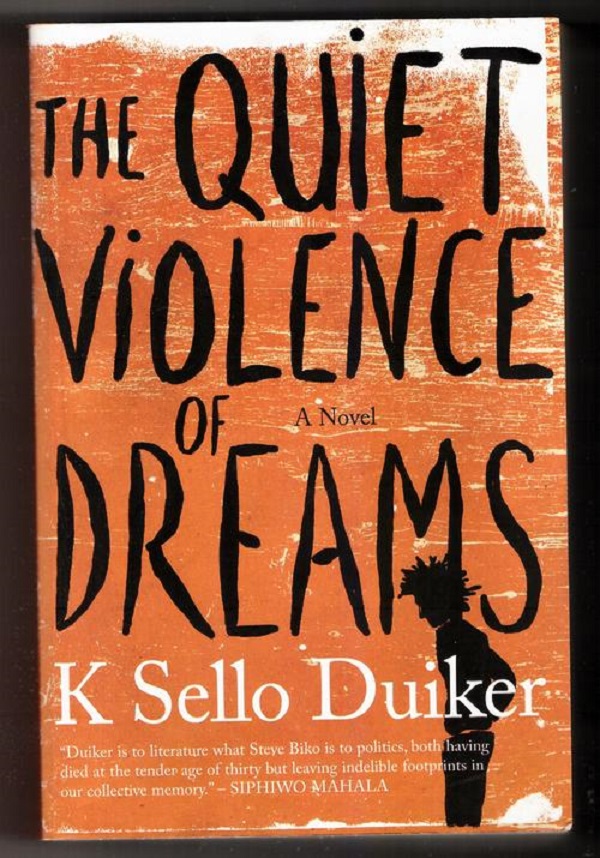
DEAR PAUL,
This is not the first time I have heard these suggestions voiced, implied, posted on Facebook, Twitter, on blogs. They were so frequent that, in response, I began an essay, even as I wondered how it was not as obvious to them as it was to me. So you are not alone in your accusations. But I must assure you that, as worth engaging as they are, your fears are logically, statistically and artistically unfounded.
Know, Paul, that literature about queer experiences, literature in which queer people appear—I have stopped using the term “queer literature” for reasons I will explain later—is not new in Africa. Africans have always written about queer Africans. Nigeria’s Wole Soyinka’s The Interpreters (1965), Mali’s Yambo Ouologuem’s Bound To Violence (1971), Ghana’s Kofi Awoonor’s This Earth, My Brother (1971), Ghana’s Ayi Kwei Armah’s Two Thousand Seasons (1973): these are fiction books that have characters who are gay, lesbian, or bisexual. But these books all suffer from a certain affliction: their authors’ inability to portray queer people as regular human beings, their authors’ puzzling use of their characters’ queerness as a plot device, a political twist in their overall anti- and post-colonial visions in which queerness represents colonialism and everything wrong with it, in which the queer characters are either non-African, as in Soyinka’s The Interpreters, or irresponsible Africans, as in Awoonor’s This Earth, My Brother. In fact, Soyinka’s imagination of homosexuality in The Interpreters has been described, in a 2015 Africa Is a Country essay by Neelika Jayawardane and Ainehi Edoro, as “cringe-worthy and extremely unsympathetic”: “Same-sex desire is caricatured and vilified through the figure of a mixed-race African-American gay man playing out the classic stereotype of the non-African homosexual outsider whom everyone treats with mild indifference or open revulsion.”
In 2012, the website Gender Across Borders published a brief overview of “LGBT Literature in Sub-Saharan Africa,” which cites critical works by Daniel Vignal—who “analysed 23 novels including Ayi Kwei Armah’s Two Thousand Seasons (1973), Kofi Awoonor’s This Earth, My Brother (1971), Wole Soyinka’s The Interpreters (1973), and Yulisa Amadu Maddy’s No Past, No Present, No Future (1973)”—and Chris Dunton—whose concerns “include Yambo Ouologuem’s Bound To Violence (1971), Awoonor’s This Earth, My Brother, Maddy’s Our Sister Killjoy (1977), Mariama Ba’s Scarlet Song (1985), and Soyinka’s The Interpreters”—and quotes Vignal as observing that “for the majority…homophilia is exclusively introduced by colonialists or their descendants; by outsiders of all kinds; Arabs, English, French, metis and so on.” The overview offers more:
In Edia Apolo’s short story collection Lagos Na Waa I Swear, a lesbian relationship is stigmatised as ‘grossly repulsive, un-African and most unlikely.’ In Two Thousand Seasons, Armah portrays homosexuality as a practice of the Muslim from the desert who began the first seasons of enslavement. In This Earth, My Brother, the houseboy Yaro left his white master ‘because he wanted to turn him into a woman.’
So while queer people have been appearing in African literature since the past 50 years, Paul, you can see that they have not always appeared as full human beings, with real lives and loves and dreams, human beings as capable of happiness as they are of pain. So in this sense, you are right about this development being new. But it didn’t result from pandering to a Western need to “project a certain image of Africa.” It came about as a natural process: as part of the same wave of realization and freeing expression that animates, globally, the surge in feminist thinking, and that has accelerated, in Africa, the formal rise of speculative fiction. This new visibility of Literature Humanizing Queerness is therefore not an isolated development: It only reflects how Africans everywhere are writing from and about peculiar experiences: as females who grew up reading about stunted, suppressed females whose lives do not mirror their own; as wildly imaginative minds who grew up reading Ngugi’s Weep Not, Child and Mariama Ba’s So Long a Letter when what they wanted was to be swept off to Mars; and yes, as lesbian, gay, bisexual, trans people who grew up reading books that made them abnormal and un-African and have now decided to write themselves into history. This, writing oneself into history, is after all a major reason why Chinua Achebe wrote Things Fall Apart, because he came up reading Joyce Cary’s Mr Johnson and Joseph Conrad’s Heart of Darkness and couldn’t find the Africa he knew in those books. This need to see oneself in literature is not a “trend,” Paul: it is life, an indispensable phase of cultural renegotiation—like the anti-colonial literature of the 1950s and ’60s, the postcolonial disillusionment literature of the ’70s and ’80s—that ensures the diversification and confrontation of history. And it is from this Life, this cultural renegotiation, that books humanizing queer experiences were born in your country, Nigeria: Jude Dibia’s Walking with Shadows (2005), the first novel to focus on being gay there; Chinelo Okparanta’s Under the Udala Trees (2015), the first novel to focus on being lesbian there; Romeo Oriogun’s Burnt Men (2016), the first poetry chapbook to focus on being gay there; and this year, Chike Frankie Edozien’s Lives of Great Men, the first memoir by a Nigerian to focus on being gay, and Olumide Popoola’s novel When We Speak of Nothing, partly set in London.
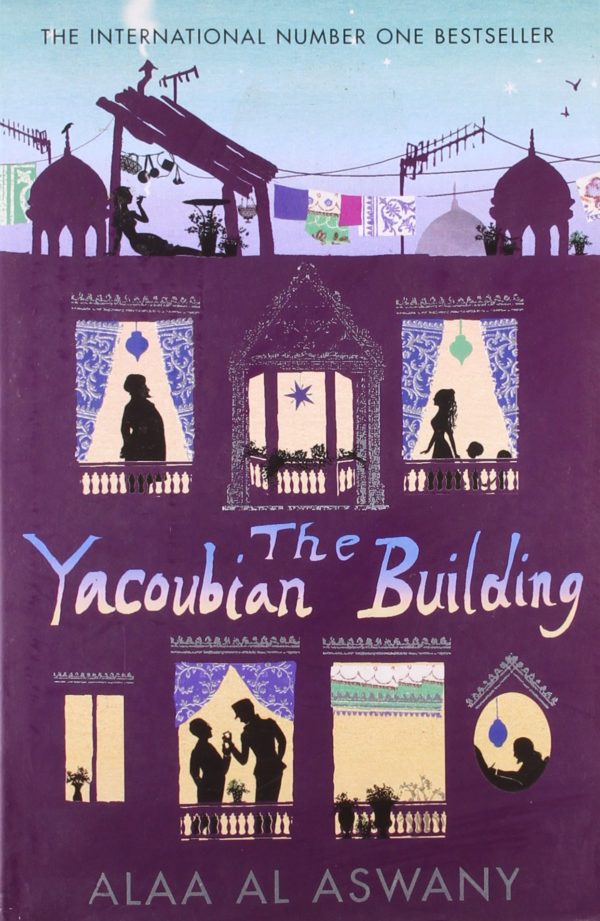
But it isn’t just in Nigeria; in fact, literature humanizing queerness is quite young in your country. A 2012 blogpost on BookShy lists fiction books, from a few other countries in Africa, that humanize a range of queer experiences, from interracial love to sexual repression, from parents struggling to accept their children’s sexualities to people leading double lives, to self-identifying heterosexual people struggling with masculinity and intimacy: Egyptian Alaa Al Aswany’s The Yacoubian Building (2002); Zimbabwean Tendai Huchu’s The Hairdresser of Harare (2010); Gabonese Wame Molefhe’s Go Tell the Sun (2011); Somali Diriye Osman’s Fairytales for Lost Children (2013); and these from South Africans, whose country has produced the bulk of this literature on the continent: Damon Galgut’s The Beautiful Screaming of Pigs (1991); Ashraf Jamal’s Love Themes for the Wilderness (1996); Mark Behr’s Embrace (2000); K Sello Duiker’s The Quiet Violence of Dreams (2001); Shamim Sarif’s The World Unseen (2001); Achmat Dangor’s Bitter Fruit (2001); Tatamkhulu Afrika’s Bitter Eden (2002); Barbara Adair’s In Tangier We Killed the Blue Parrot (2004); Fred Khumalo’s Seven Steps to Heaven (2007); Raydar Jacobs’ Confessions of a Gambler (2007); Michael Power’s Shadow Game (2008); Jane Bennett’s Porcupine (2008). Add to these more titles from Gender Across Borders: Damon Galgut’s Sinless Season (1982), Stephen Gray’s Time of Our Darkness (1988), Ian Murray’s For the Wings of a Dove (2000), Michiel Heyns’s The Children’s Day (2002), Guy Willoughby’s Archangels (2002), Michiel Heyns’s The Reluctant Passenger (2003), Barry Levy’s Burning Bright (2004), and Craig Higginson’s The Hill (2005), all of which are also by South Africans. All of which show that vast shades of queerness were being humanized in African fiction since the past three decades.
Paul, I will concede—because I need you to understand what “political concession,” as you mean it, really is—that to write literature humanizing queerness is a political act: because writing itself is political, because to humanize queerness is a decision in much the same way that to demonize it is, but a decision to be honest and empathetic and truthful, because to tell the truth is a decision. But I must point out also that to write literature humanizing queerness is only as political as it is not, because it is grounded in lived experience, grounded in the vagaries of everyday breathing that has no recourse to grand political intentions; because, in your country Nigeria, there is Akinnifesi Olumide who died from a mob beating in Ondo State in February 2016; there are the forty-two men arrested in Lagos this year for attending a “gay party”; there is the online hate faced by Bobrisky for straddling masculinity and femininity so loudly; and there are the man and the boy harassed on video in Edo State this year—How can one un-robbed of empathy say that to show these lives in literature is a “political concession”?
When you say that stories about queerness “have limited emotional impact because not everybody can relate to it,” I wonder what you mean. The fact that knowing that such stories exist bothers you and your friends is proof of powerful impact. Unless you have statistics to prove that “not everybody can relate to it,” how will you explain the number of people who read and discuss these stories, the fact that people who aren’t queer still go on to read and discuss them despite the labels hung on them? Has it crossed your mind, Paul, that there may be human beings, queer people, who might not relate to stories of men falling in love with women? Has it crossed your mind that the non-relation of a specific demographic to a story, to any work of art, does not diminish that story’s power and relevance both to the people who do relate to it and to the culture at large?
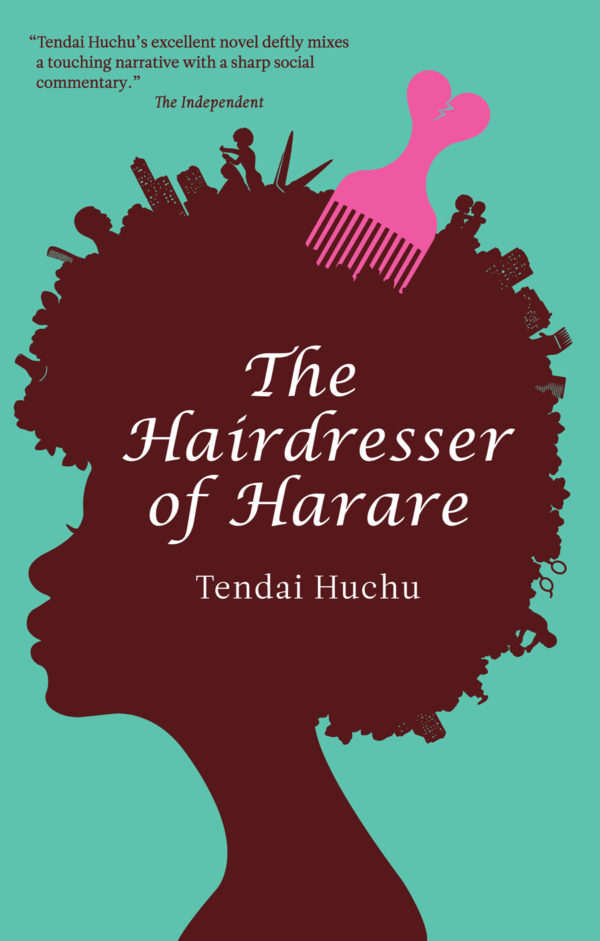
I am heavily skeptical of the term “queer literature,” or “LGBTQ literature,” because it has no counter-reference. Unlike “African literatures”—Anglophone, Francophone, Lusophone, and in indigenous languages—which fits into a geopolitics that acknowledges an equal term, “European literatures”—English, French, Italian, Spanish—the lack of an equal for “queer literature”—an equal which would have been called “heterosexual literature,” writing that examines what it means to be heterosexual—begs the question: Why should literature exploring same-sex desire be categorized based on who its characters find themselves loving or on who its writers themselves love, especially as such categorization is withheld from literature exploring desire for the opposite sex? If you think my suggestion of “heterosexual literature” is flawed, then it is because the suggestion of “queer literature” also is. While the categorization does function as a marketing tool, a way of drawing attention to literature traditionally overlooked, lives deliberately unseen, it is one that is rooted in Othering, and so proves insufficient in humanizing queerness, particularly with the way it takes focus away from the skill of its writers and pushes it to their subject, a denial not bestowed on writers of “heterosexual literature.”
So know, dear Paul, that to describe Chinelo Okparanta’s Under the Udala Trees as a “lesbian novel” offering “limited emotional impact” as regards romance because its main lovers are lesbian and not everybody is lesbian would be to concede that a book like Chimamanda Ngozi Adichie’s Half of a Yellow Sun is a “heterosexual novel” offering “limited emotional impact” as regards romance because its main lovers are heterosexual and not everybody is heterosexual. Does it sound strange to you, “heterosexual novel”? Does the argument sound silly? Well, that’s because it is. So welcome to the politics of labeling, the semantics of description. If Romeo Oriogun’s poetry does not appeal to you because its voices are queer, then know that there are poetries that do not appeal to some others because its voices are heterosexual. If you insist that Arinze Ifeakandu’s “God’s Children Are Little Broken Things” was shortlisted for the Caine Prize because it is a “gay story,” because its two main characters are gay, then you owe it to objectivity to concede that Bushra al-Fadil’s “The Story of the Girl Whose Birds Flew Away” won because it is a “heterosexual male story,” because its male narrator spends the story longing for a girl. Name for name, label for label: it boxes thinking, strangles intellectual and literary cultures, sells us short. I push back, fiercely, against these labels, and pushing back has left me in the same exasperation from being boxed that might have led Taiye Selasi to argue in 2013 that “African literature doesn’t exist”; the same attribution to “trends” that might have led Chimamanda Ngozi Adichie to quip this year that “feminism is not that hot.” Why do we relegate as “trends” natural evolutions of human expression?
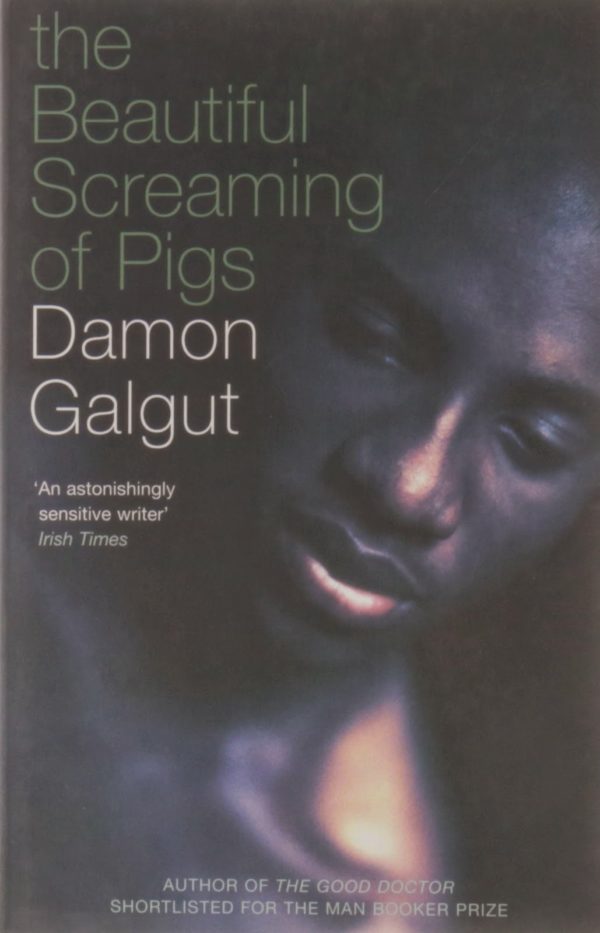
Finally, dear Paul, let me get down to the aspect of your worries that bothers me the most: the question of awards’ deservedness, of whether the writers you mention were recognized not because they were good enough but because they wrote about queer experiences, of whether they would have stood out on artistic merit alone, that major awards in Africa are now dominated by “queer writers.” None of these are true. Romeo Oriogun and Arinze Ifeakandu, for instance, are remarkable in every facet of artistry—their language, their emotional depth and power, their narrative skills. They were formidable writers before being recognized by the Brunel Prize and the Caine Prize, and had they not being recognized by the prizes, they would remain formidable writers: because talent is talent, delayed or denied or belittled or overshadowed; and when this talented, why exactly is anybody arguing—and daring to argue this on grounds of artistry—that “they get it even when they don’t deserve it”? How exactly? Which brings us to how writers whose works build on queer experiences have fared with literary awards in Africa, so we can evaluate how statistically accurate the argument that “all anybody needs to do to win or be shortlisted for awards in Africa is write about homosexuality” is.
The first time that fiction humanizing queerness was honoured by an international, African non-book prize might have been in 2008, when the Caine Prize went to Monica Arac de Nyeko for “Jambula Tree,” a measured exploration of two girls’ attraction to each other in Uganda. It happened again in 2012 when Stanley Kenani was shortlisted for “Love on Trial,” a farcical treatment of a young man’s homosexuality after he has been caught in a homophobic Malawi. And in 2013 when Chinelo Okparanta was shortlisted for “America,” told in accomplished prose by a job-seeking female graduate looking forward to life in the U.S. with the woman she has fallen in love with in Nigeria. And in 2014 when Efemia Chela was shortlisted for “Chicken,” told, by a young woman in a transitory phase in South Africa, with homoerotic undertones. And in 2017, with Ifeakandu’s shortlisting for “God’s Children,” this heart-melting tale that makes me wonder how anyone can read it and see not two human beings in love but just two penises. I haven’t read all the stories shortlisted for the Caine Prize, because stories from the prize’s first decade are tough to find online, but we can make do with these five. So if the number is in fact five, it would mean that the Caine Prize, after 17 years of shortlisting five writers annually, after shortlisting a total of 85 writers of African origin, could only, from the thousands of submissions it received all these years, recognize just five stories humanizing queerness, and across five different years, which would mean that the prize has had 12 years in which it totally left out stories humanizing queerness. Of course I am not saying that the Caine Prize has a duty to represent literature about queerness; I am only highlighting how, contrary to what you believe, African literary prizes have traditionally and loudly ignored literature about queerness.
In 2017, five prizes in Africa recognized literature humanizing queerness: the Brunel Prize, the Commonwealth Prize, the Caine Prize, the Writivism Prize, and the Gerald Kraak Award, which was created partly to recognize such literature and so will not be considered in our analysis. Dear Paul, this means that a host of other prizes did not. Still, let’s dive deeper into the four prizes in focus. As with the Caine Prize, the Brunel Prize, the Commonwealth Prize and the Writivism Prize show similar figures this year: Of the ten bodies of poetry shortlisted for the Brunel Prize, only two deal outright with queerness, the winner Oriogun’s and the Somali-Australian Sahro Ali’s; of the three stories shortlisted by the Writivism Prize, only the winner, Nigeria’s Munachim Amah’s “Stolen Pieces,” deals with queerness; and of the three stories shortlisted for the Commonwealth Prize, only the winner, Nigeria’s Akwaeke Emezi’s “Who Is Like God?,” does. Put together with figures from the Caine: Five works about queerness made four prize shortlists that altogether comprised 21 writers. Five out of 21 doesn’t strike me as “domination.” Granted: three out of the five won their respective prizes; but to argue about the quality of their writing in the context of the shortlists they emerged from is a conversation that will not end in any of them not being as worthy of the honour as their fellow shortlisters.
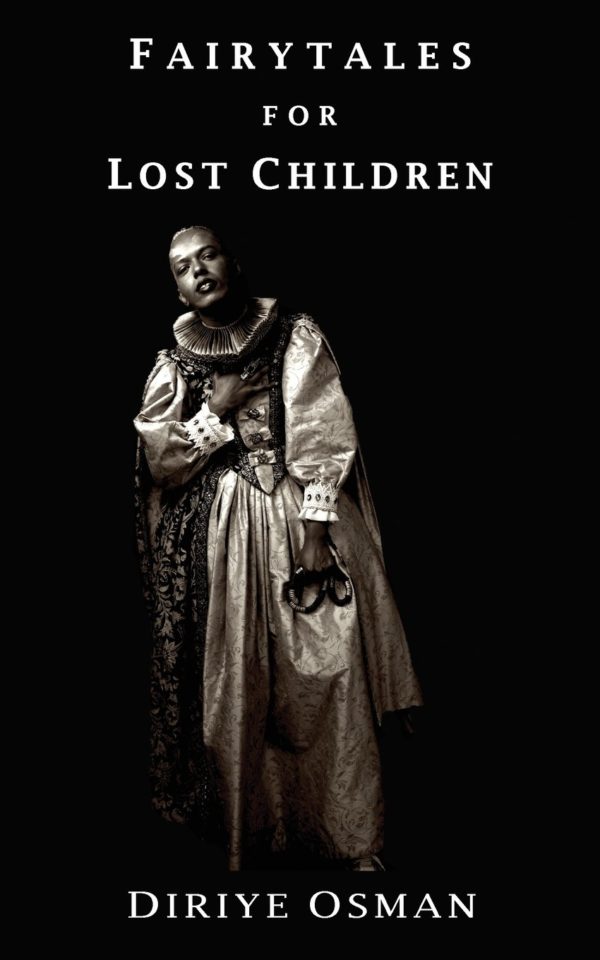
So, dear Paul, in order to be recognized by a literary prize, you need to do more than just “write about homosexuality.” You need to actually write well—and even this is no guarantee. That these prizes are mostly funded by Westerners has little—and nothing politically—to do with the visibility of these stories; it doesn’t prove any attempt “to forcefully make homosexuality mainstream.” What Western funding shows instead is another, more foundational conversation we should be having: The link between the arts and politics, the funding from politics that allows the arts to focus on creativity, and why the arts in most countries in Africa may never be fashioned in the continent’s true multi-image—queer, heterosexual, poor, privileged—until their own governments begin funding them unconditionally and with no strings attached. It is in the absence of home government funding that Western institutions stepped in, which I personally welcome—but that is another story.
Paul, listen: Okparanta’s Under the Udala Trees is an important book, it shows history from a perspective merely different from what you’ve known; Romeo Oriogun’s poetry will open your eyes to the workings of language, as will Arinze Ifeakandu’s fiction; Petina Gappah’s “A Short History of Zaka the Zulu” will show you how we see clearest in retrospect: It would be unfortunate if you refused to read these works as they would help you in your own writing. We shouldn’t go through life without listening to voices different from ours, if only to expand our own awareness of the world.
(A quick clarification: When you say “queer writers,” do you mean writers whose writing humanizes queer experiences—because you should know that humanizing queerness doesn’t make one queer and there are heterosexual writers whose writing does just that—or do you mean writers who are queer—because there are many, many writers, established and upcoming, who are queer but don’t explore queerness in their writing and are also not going to appear on CNN to tell you that they are queer? What I’m saying is this: “Queer Writer” isn’t a term you should use unless you are referring to writers who are queer, not because they explore queerness but because they are biologically queer, and only in the sense that you could also say “heterosexual writer.” “Queer Writer” can never make sense as a literary categorization.)
Lastly, Paul, I wish you luck in your writing. Keep trying, keep reading, keep writing what you feel, what you care about, what moves you. If my letter has helped you develop empathy for literature humanizing queerness, I would be happy. If your gay writer-friends help you to eventually develop empathy for queerness, you will find that you would be happier and at ease. If, like last year, you entered for the same prizes again, I hope you get nominated. If you don’t, nothing has gone wrong: you can always be a successful writer with or without prizes. But never, ever write what you don’t feel because you think it might land you a prize—otherwise you risk producing propaganda.
Dear Paul, I hope to hear from you,
Mr. Brittle.
Check out more Brittle Paper series: “Dear Ms. Paper” by our editor Ainehi Edoro; “Dear Tete Petina” by the acclaimed novelist Petina Gappah; and “Dear Genevieve” by the social critic Ikhide R. Ikheloa. Questions for them can be sent to brittlepaper@gmail.com with the relevant headers.








Restoring Marginalised Voices: A Review of Akwaeke Emezi's The Death of Vivek Oji - The Shallow Tales Review March 30, 2021 23:44
[…] have begun to emulate. Otosirieze Obi-Young in a December 18th, 2017 Brittle Paper-published article, held that queer literature in Africa is not a trend but has always been in existence in Africa. […]